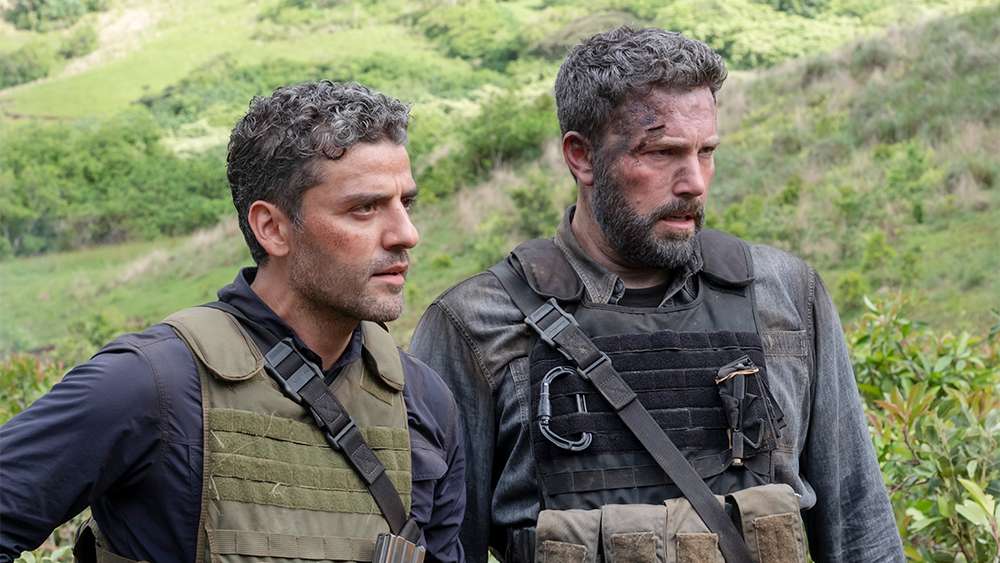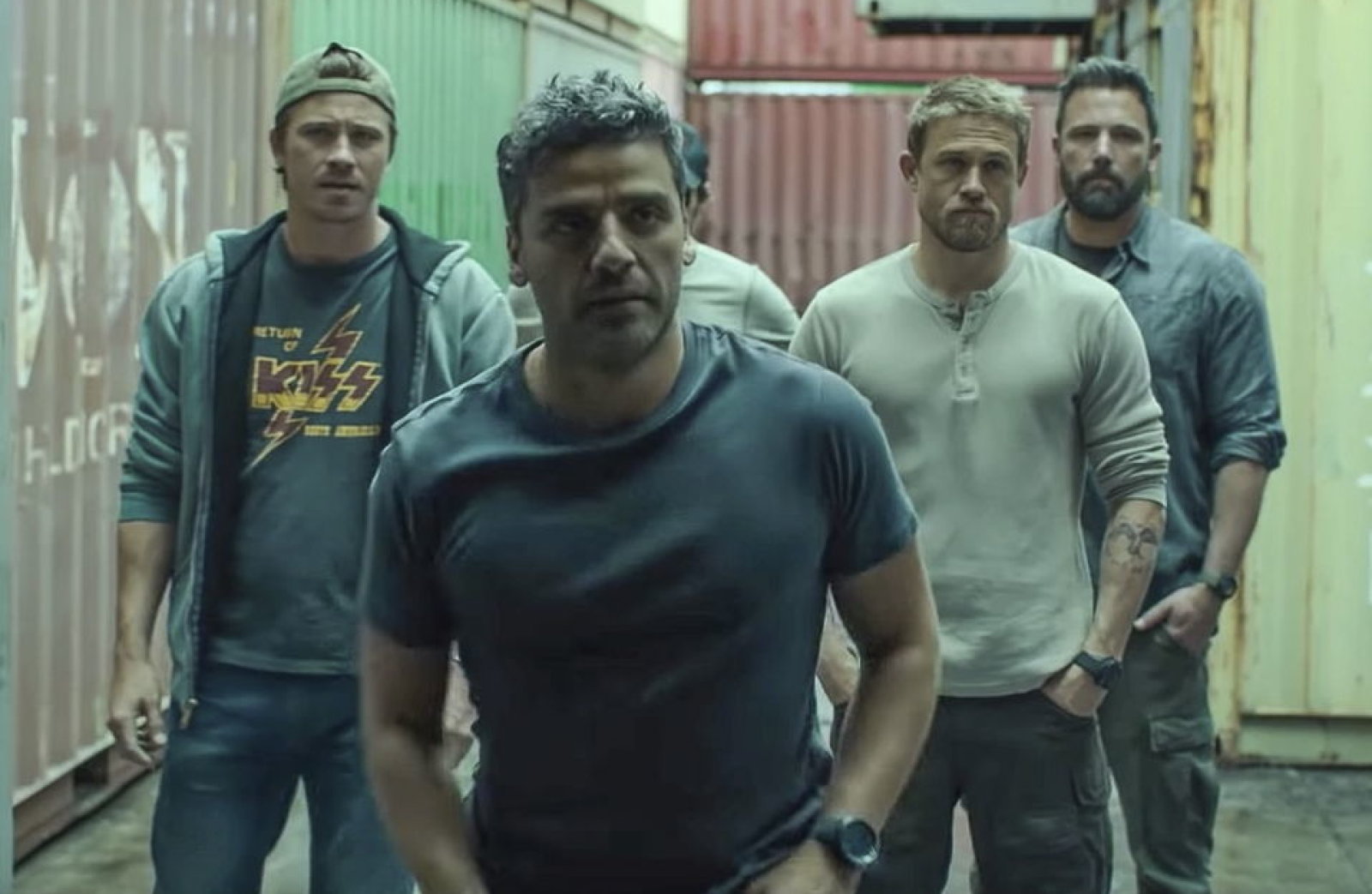Netflix's Triple Frontier Is a Good Heist Film, and a Not Quite Great Anti-War Movie
Strong performances and sharp direction elevate this drug-war action thriller.

Netflix's Triple Frontier is a heist film that wants to be an anti-war movie—specifically, a movie about America's small and secret wars, the ones fought by consultants and operatives and no-name agencies, the ones that aren't referred to as wars at all, the ones that cost us in ways we don't always recognize. It almost succeeds.
The film opens with a not-quite recruitment speech by a guy named "Ironhead" (an unusually restrained Charlie Hunnam)—not quite because it's being delivered to American soldiers who have completed their service, and have the option to leave for more lucrative work. Ironhead's argument is that it's impossible to truly leave war behind. "The effects of committing extreme violence on other human beings are biological and physiological," he says. "That's the price of being a warrior." Triple Frontier is a movie about the price of permanently being a warrior, and the cost of endless war.
Among those warriors is Santiago "Pope" Garcia (Oscar Isaac), who we first encounter in the middle of a central American drug raid gone wrong. There's a shootout, staged with gritty precision by director J.C. Chandor, a director known mostly for dramas who proves himself a remarkably adept director of high-stakes action. After the battle, local police execute survivors with Pope's tacit approval. Technically, he's a consultant, not a soldier, not responsible for what local forces do—but it's hard to say where the line is. Pope is trying to stop a murderous drug lord named Lorea, but mostly he's enabling thugs with government backing. The movie doesn't quite go so far as to openly question drug prohibition, but it does suggest that in the drug war, as in all wars, intervention is rarely as simple as it seems. There are always consequences.
From there, Pope recruits a crew of ex-Special Forces buddies—Ironman, as well his brother Ben (Garrett Hedlund), who is wasting away his middle age in low-rent ultimate fighting matches, and Catfish, a pilot with a drug charge hanging over his head. The most reluctant of the bunch is Captain Tom "Redfly" Davis (Ben Affleck, whose moping middle-aged dad mode is put to excellent use), who is struggling to sell condos in order to support his daughters. Over time, Pope reveals their mission: Kill Lorea, then make off with his massive stash of cash in the process.
What follows is a tense, taut heist operation that slowly evolves into something more desperate. They make off with the money—far more than expected—but at every stage, something goes wrong, pulling the men deeper and deeper into a moral abyss of their own creation. In part, it's a tale of greed, in which the men are repeatedly asked what they would do, and what they would risk, to keep the money they stole. In this respect, it resembles an action-heavy riff on Sam Raimi's A Simple Plan, another movie about people who think of themselves as decent, but who are slowly tempted into betraying their own moral codes for material gain.

But Triple Frontier's ambitions go beyond simply exploring the universally corrosive power of greed. At its best, it offers a stark look at the human toll of war—less in terms of lives lost than in terms of lives changed. The soldiers at the center of the film are otherwise ordinary people who have lost the ability to determine right from wrong. It's the story of men who have been burned out by war, turned into half-alive husks by years of killing for the government, men who make one wrong choice which leads to another, and another, and another. Which is to say, it's the story of failed wars.
I say "at its best," because Chandor and co-writer Mark Boal (who also scripted Zero Dark Thirty) can't quite bring themselves to commit to their condemnation. In the end, they want to make their heroes likeable. Essentially they commit to the protagonists' view of themselves as flawed people who have made grave mistakes but can still, perhaps, make better choices and be redeemed. It's an appealing idea, but it lets the heroes off the hook, offering them more forgiveness than they deserve.
Strong performances and sharp direction make Triple Frontier a good movie—the sort of smartly directed, middle-budget, star-driven film that only seems to exist on Netflix these days. But its final unwillingness to fully confront the darkness of its subject matter keeps it from being a great one.


Show Comments (14)